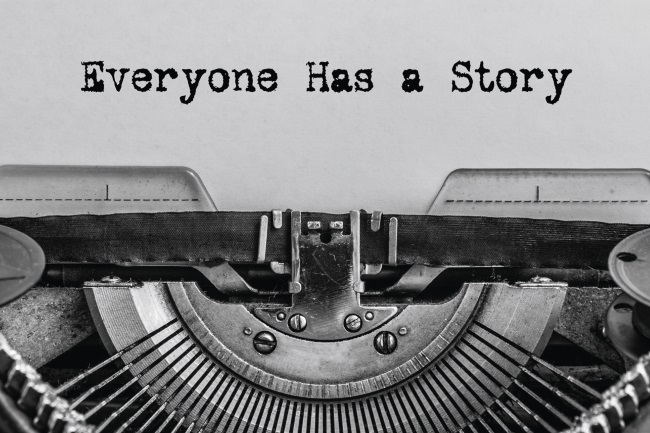In our latest personal development article Chandra Devi (the chosen pen name and Hindi baptismal name of Karen Northshield) explains the many benefits of journaling.
What do Shakespeare, Albert Einstein and Leonardo da Vinci all have in common?
They kept a journal to record their experiences, thoughts and feelings. They understood the benefit of expressing and keeping track of their thoughts and ideas. Journaling or note-taking permits one to sketch out ideas in an expressive and analytic way which helps considerably to structure mind, life and work. It is a broader activity than keeping a diary which is a book to record events as they happen.
You do not have to be Shakespeare to keep a journal, anyone can learn to use this helpful tool to express oneself and reap the benefits. It is not only good for the mind, but it is also simple, fun and very rewarding in very little time.
So grab your pen and writing paper, cup of tea and start reading.
Journaling is not only an exercise for the mind, but also very therapeutic. Just as physical exercise keeps the body in shape, journaling is a similar approach to yoga and meditation and is one way to keep the mind in check. Journaling also creates space around your thoughts and offers great relaxation time. It is a moment for yourself at any given moment of the day and when done in the morning, can help prepare for the day and when accomplished in the evening helps you to wind down.
More than allowing us to put our often muddled thoughts on paper, we learn to organise and prioritise them. We learn to identify our thoughts, emotions, and with time our behaviour patterns. On the one side, we can track our negative self-talk and on the flip side, journaling encourages positive self-talk.
Eight reasons why
Other than writing our ideas on paper and trying to make sense of them, it has been suggested that journaling can help with the following:
1. Gives peace of mind: Journaling keeps all of your thoughts in one place. Rather than writing on post-its and running the chance of losing them, you can recollect your ideas in the same way you keep a photo album. Rather than having the feeling that your thoughts are all over the place, note-taking gives structure and peace of mind.
2. Strengthens memory capacity: Expressive writing can increase what is called working capacity or memory capacity. Just the simple act of writing something down acts like a reminder to the brain. That is why note-taking is also encouraged when learning something new.
3. Reduces stress and anxiety: Journaling creates mental stability. Sometimes negative thoughts and emotions gain control of our mind. When putting thoughts and emotions down on paper, it brings the negativity out of the mind, liberating the mind from negative thoughts and emotions.
4. Helps define and achieve goals: Journaling is a great way to define goals, which allows you to keep track of initiatives and results. Similar to mind-mapping, this can also help map out a structure in order to better accomplish goals.

5. Builds confidence: With diligence and regularity, you can see how much progress you have made or what process lies ahead. You can go backwards at any time in your journal to better pace forward. Looking back at the challenges you faced and seeing how far you have come builds confidence and is a great motivation boost to keep going.
6. Improves writing: Writing, like anything, improves with practice. When you journal every day, you practise the art of writing. And if you use a journal to express your thoughts and emotions, it can help structure your ideas, work and life.
7. Offers a brainstorming session: Just as you might in a meeting, you can also use journaling to brainstorm or let your imagination run wild. As you write, you may even come up with an idea or a solution that you had not thought of before.
8. Mindfulness: Journaling is a good exercise of mindfulness. As you jot down your feelings and emotions, you enter a state of consciousness called the present moment. You are in an act of flow and liberation allowing you to be more mindful of the present.
Eight different styles
There are many different journaling styles and here are just a few. Try the one that speaks most to you and with time discover which one(s) suit(s) you and your needs the best:
1. To-do list: Write down your daily to-do list to keep better track of them. Cross things off as you complete them and gain an empowering sense of accomplishment.
2. Stream of consciousness: Give your thoughts freedom of speech. Write down your thoughts as they happen. The words and thoughts do not necessarily need to make sense.
3. Dream journal: Keep pen and paper by your bedside table and take note of your dreams each night as a way of getting in touch with your subconscious. Remember to make your journal entries the moment you wake up.
4. Food log: Make a note of what you have eaten each day and at what time. This will help you be more mindful about the foods you choose to eat. If you are struggling with a healthy weight-loss journey, documenting what you ate can offer insight into areas you may need or want to change.
5. Fitness log: Keep track of your exercise and workouts to help you stay committed to a healthy lifestyle. The best part of keeping this type of journal is seeing the progress you make over time.
6. Mindmapping: Like sketching, feel free to express your feelings, thoughts, and ideas through illustrations, doodles, or sketches.
7. Positivity journal: Keep track of your experiences throughout the day, describing the positive in them. It can be making note of a funny conversation or describing a new recipe you enjoyed. With time, go back and rediscover life’s positivity.
8. Gratitude journal: Before going to sleep, make a list of everything you were thankful for that day. This gives you a sense of looking forward to the next day and its many surprises.
No matter which type of journal you test and decide to keep, there is no right or wrong style or approach. The simple act of taking the time to get in touch with your mind and experiences helps to keep a tab on them.

Simple guidelines: the rule of two
Remember at all times the rule of two. This should give you inspiration, keep your thoughts flowing and give you a sense of structure:
1. Freedom of expression (express whatever you feel like and whatever comes to mind)
2. Freedom of flow or stream of consciousness (there is no order; allow the words, ideas and emotions to flow freely)
Where to start?
What if after the present guidelines you still find yourself stuck, staring blankly at an empty page? My advice is to simply start where you are. Start with whatever comes to mind even if you think it unimportant. For example, start with what you will have for breakfast, go over your grocery list or your to-do list for the day. Repeat this the following day and day after day you will notice a mental energy release and a free flow of thoughts.
Now that you have finished reading this article, with pen and journal in hand, take a few moments to write down your inspiration of the day. Simply start with the first thing that comes to mind. The first thought is often the best.
www.karennorthshield.be







